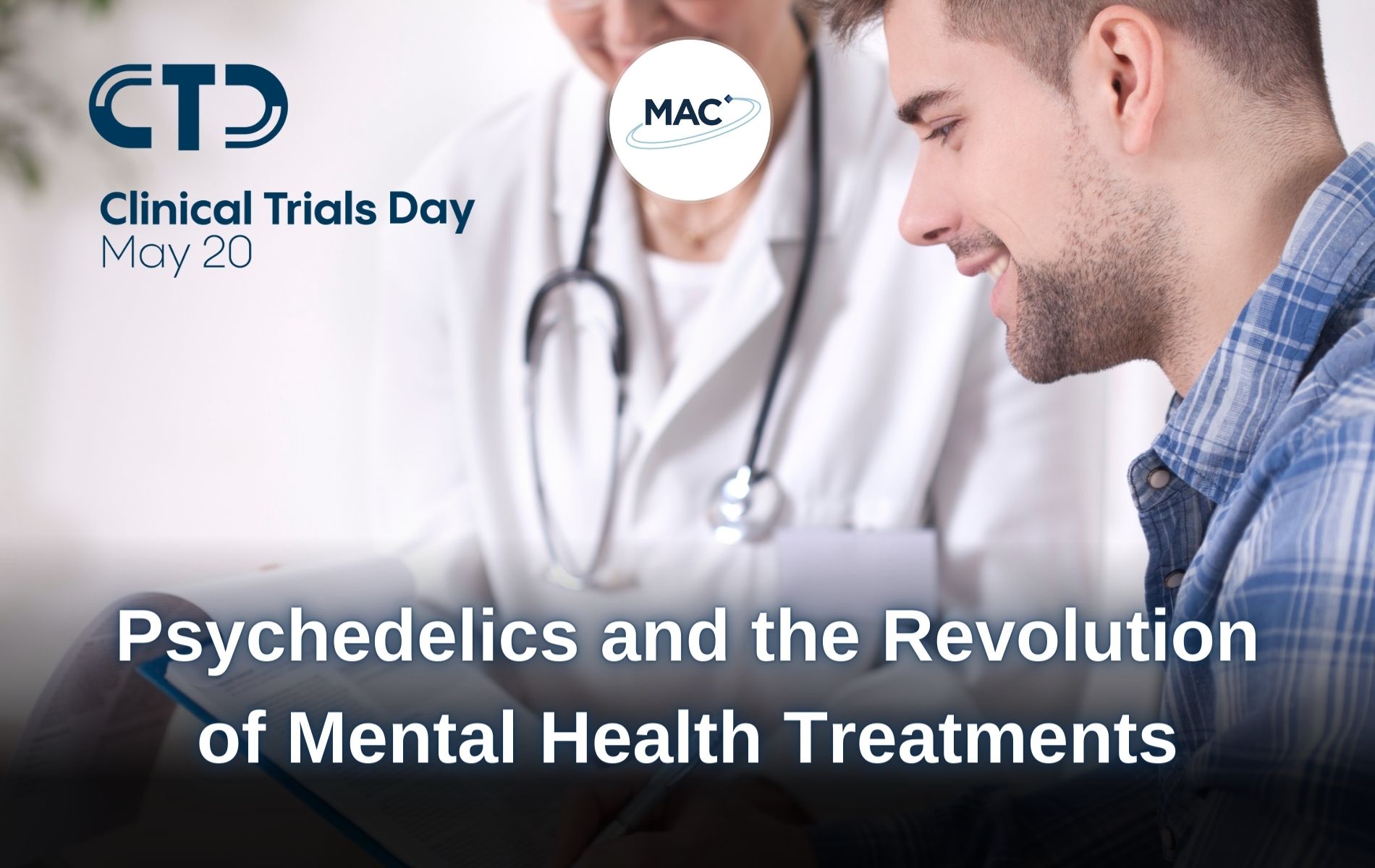This Saturday is Clinical Trials Day, and we want to raise awareness on some of the ground-breaking work which takes place in the clinical trials industry that is revolutionising mental health treatments.
Clinical Trials Day is organised by the Association of Clinical Research Professionals (ACRP) and is an opportunity to recognise all that has been accomplished thanks to clinical trials and the people behind them. The theme of this year’s day is ‘Together we can’ which is made up of four crucial elements: raise our voices, elevate the bar, be for everyone and inspire the future.
How are MAC clinical trials raising the bar? We are actively working to find more ways to deliver new therapies for various health conditions.
In recent years, there has been a growing interest in the therapeutic potential of psychedelics for the treatment of mental health disorders. Psychedelics (also known as hallucinogens) are a class of psychoactive substances that produce changes in perception, mood, and cognitive processes.
This unconventional approach is now gaining recognition through pioneering clinical trials. Harnessing the unique properties of substances such as psilocybin (found in magic mushrooms), DMT and LSD, researchers are exploring the profound impact these psychedelics can have on conditions like depression, anxiety, and post-traumatic stress disorder (PTSD).
Psychedelics work by influencing the brain’s serotonin receptors, which regulate a person’s mood. These substances create a state of heightened consciousness, leading to profound shifts in perception and self-awareness. Unlike traditional psychiatric medications that may require daily intake, psychedelics are administered infrequently in carefully controlled settings, often accompanied by therapeutic support.
One study conducted at John Hopkins University examined the use of psilocybin to treat symptoms of anxiety. The research conducted in 2016 reported that a substantial majority of people suffering cancer-related anxiety or depression found considerable relief for up to six months from a single dose of psilocybin in a clinical setting.
Another area where psychedelics have shown promise is in the treatment of PTSD. In another clinical trial conducted in 2021, research found that MDMA-assisted therapy is highly effective in individuals with severe PTSD, and treatment is safe and well-tolerated.
While the results of psychedelic trials have been encouraging, safety and ethical considerations remain paramount. Rigorous screening protocols and thorough psychological assessments are essential to ensure patient safety. Additionally, proper training for therapists and adherence to guidelines are crucial for minimizing potential risks and maximizing therapeutic benefits.
Despite the growing body of evidence supporting the therapeutic potential of psychedelics, there are still significant challenges to overcome. Regulatory hurdles, stigma, and the need for further research to establish practices and guidelines are among the obstacles faced by researchers and practitioners.
The resurgence of psychedelics as a method of treatment for mental health conditions through clinical trials, however, has demonstrated remarkable outcomes, challenging conventional approaches to psychiatric care.
MAC Clinical Research are proud to be part of the revolutionary research changing perceptions on psychedelics to treat mental health conditions. So far, we have been involved in seven psychedelic clinical trials, researching psilocybin, ibogaine and DMT. We are the first UK company to administer ibogaine by IV in a clinical research setting.
As part of these trials, we administer the psychedelics in a safe and relaxed environment in private, specially equipped rooms to minimise the chances of any psychological distress. Our specialist and experienced psychiatrists and therapists are certified to provide psychedelic treatments and monitor patients. To find out more about our current research and how you can get involved, visit our website.




